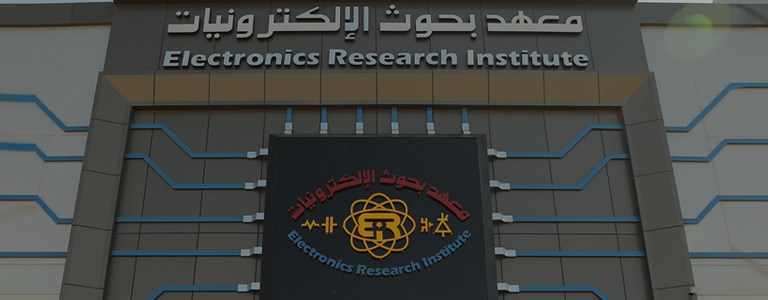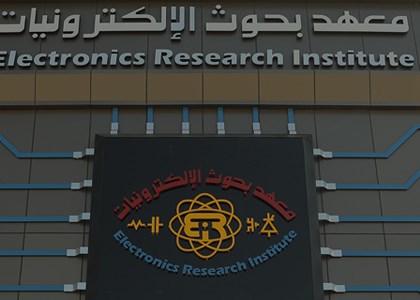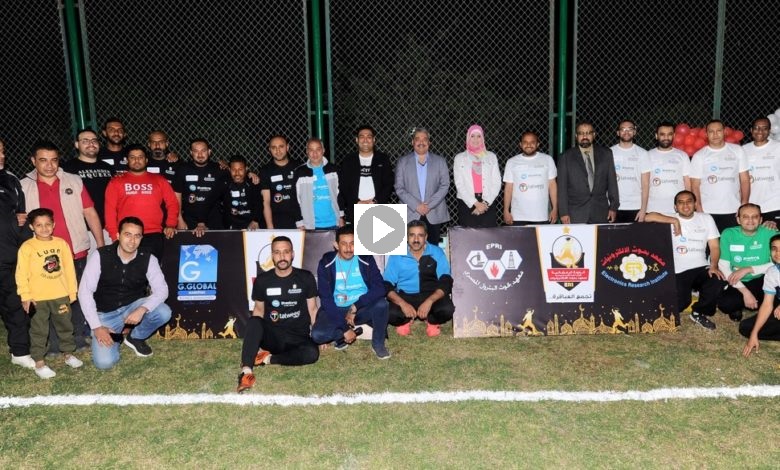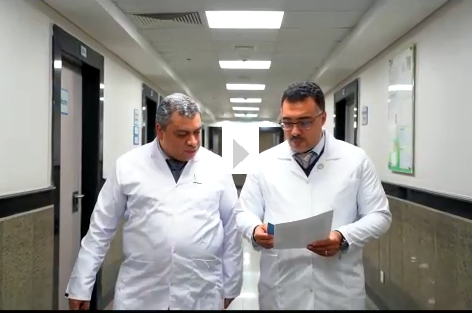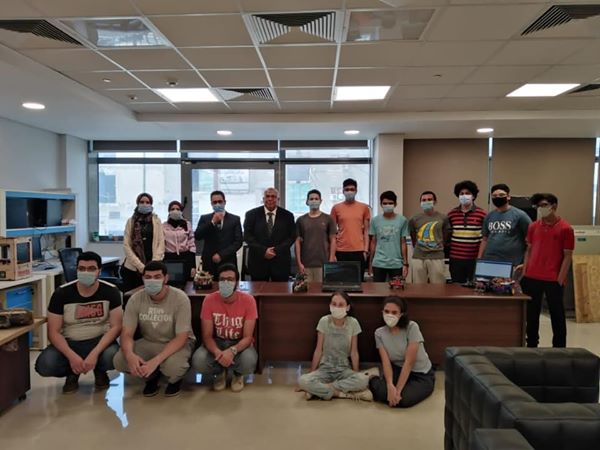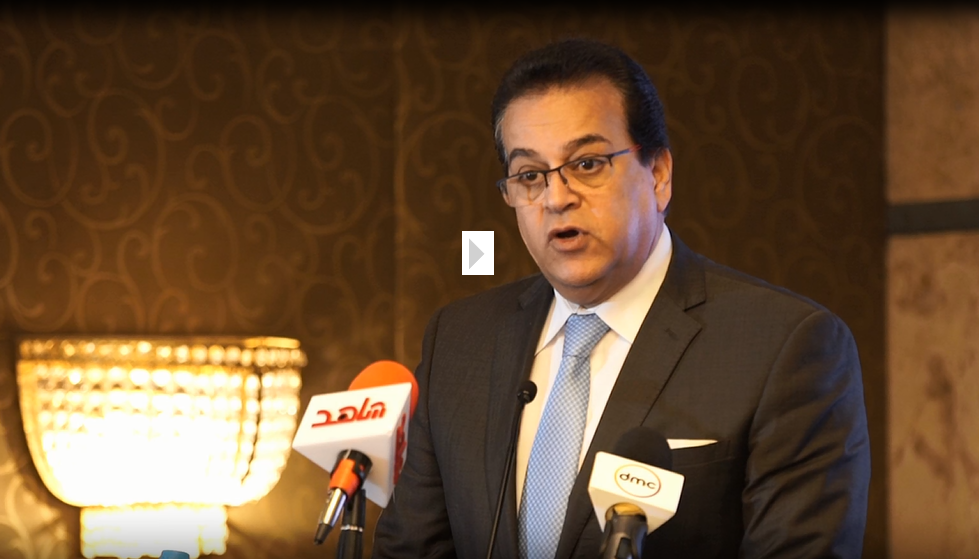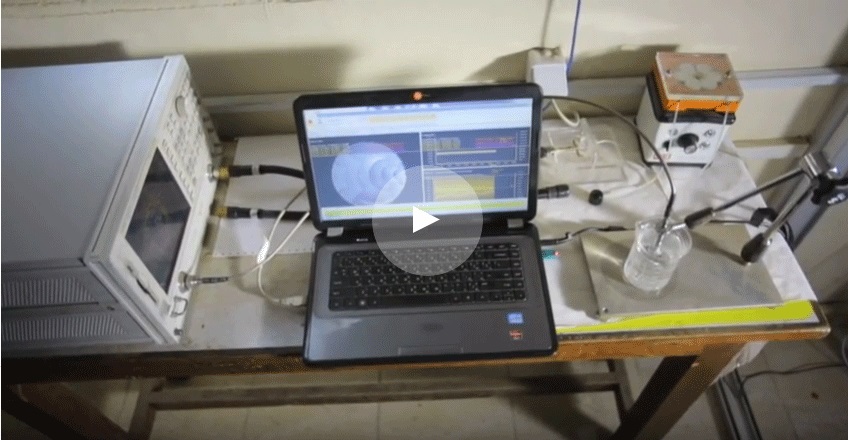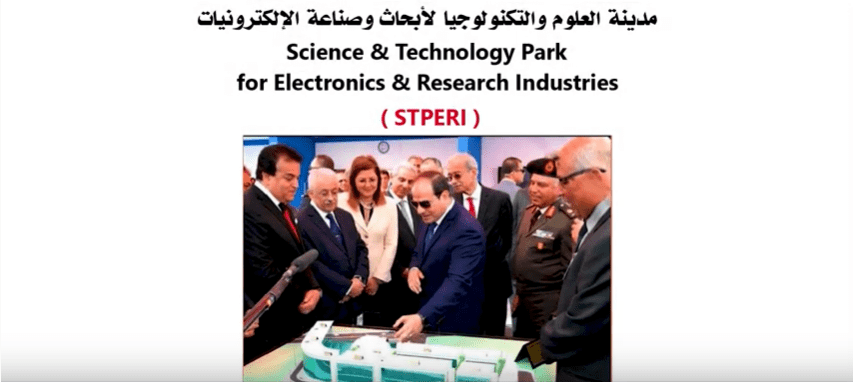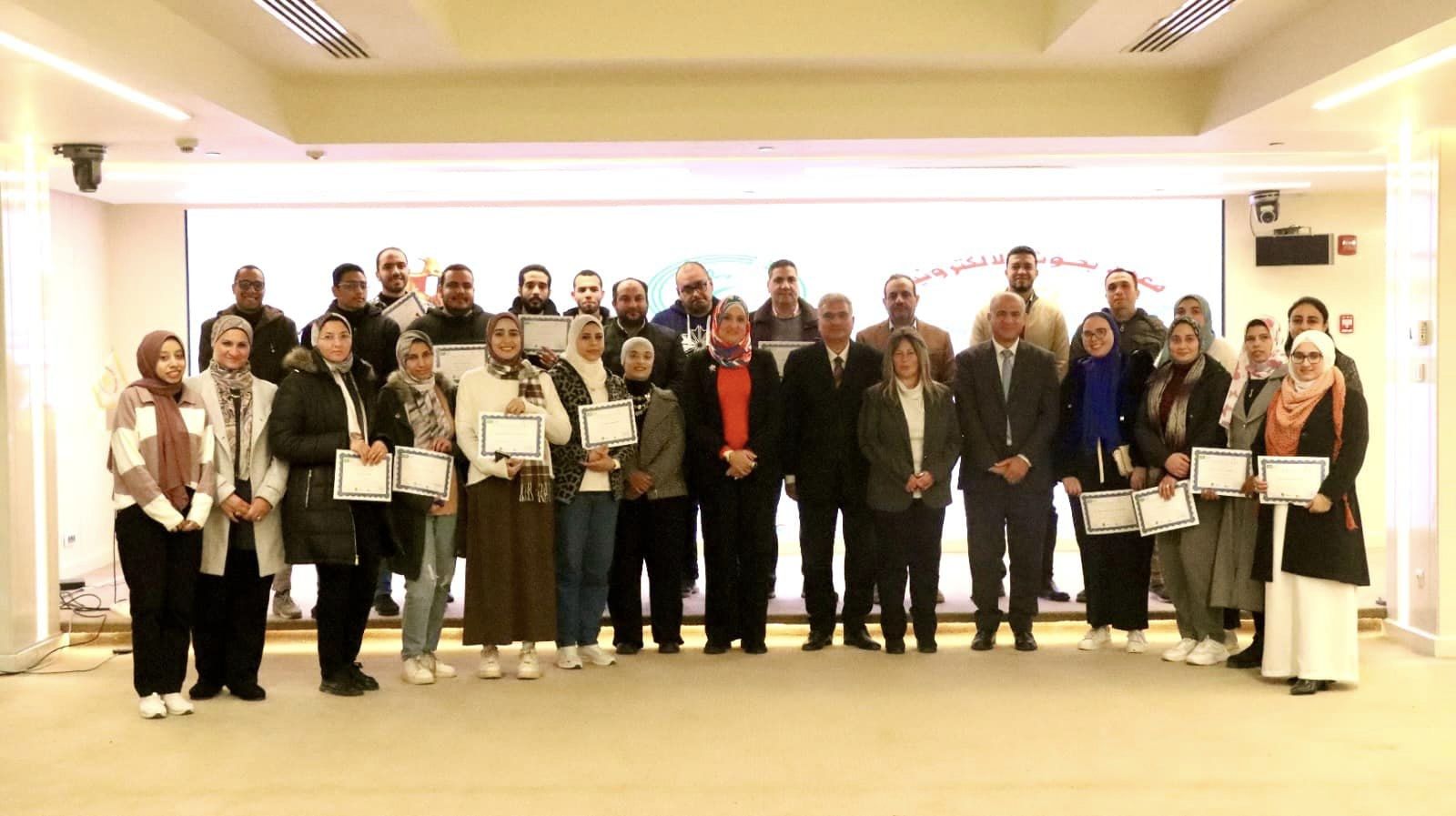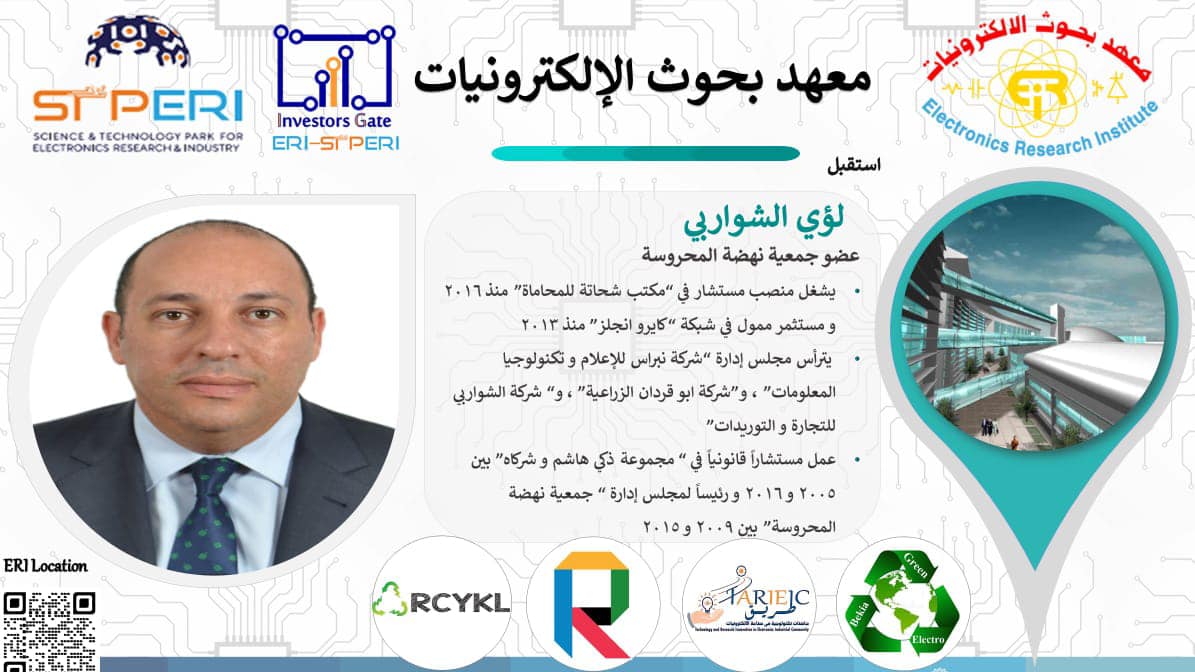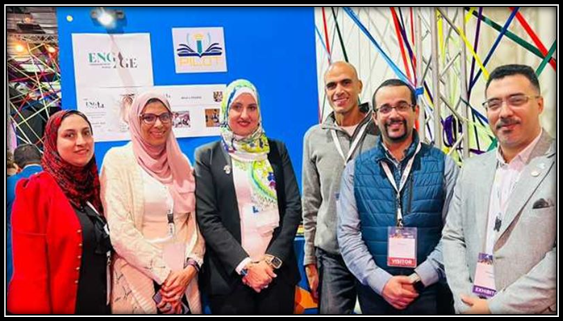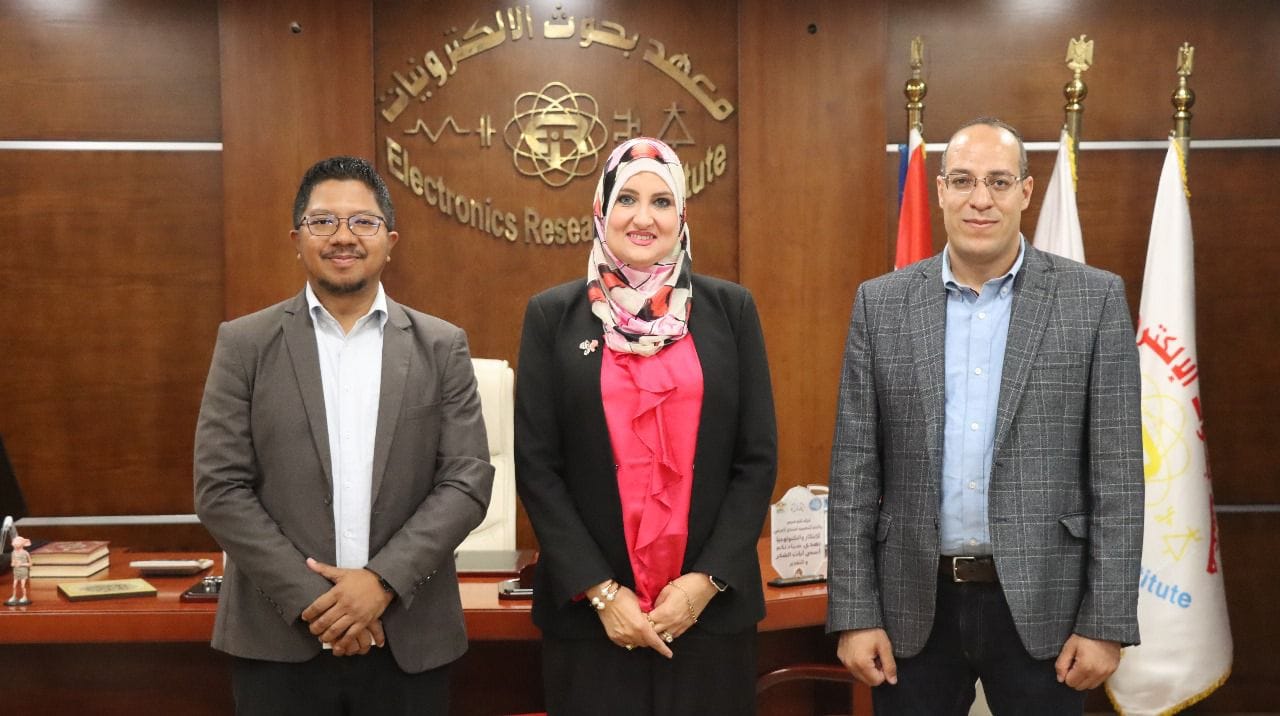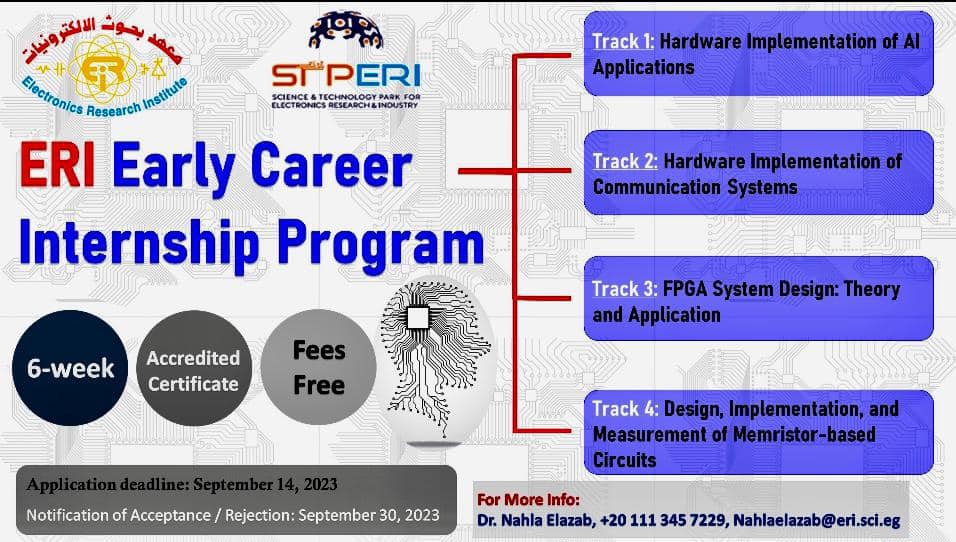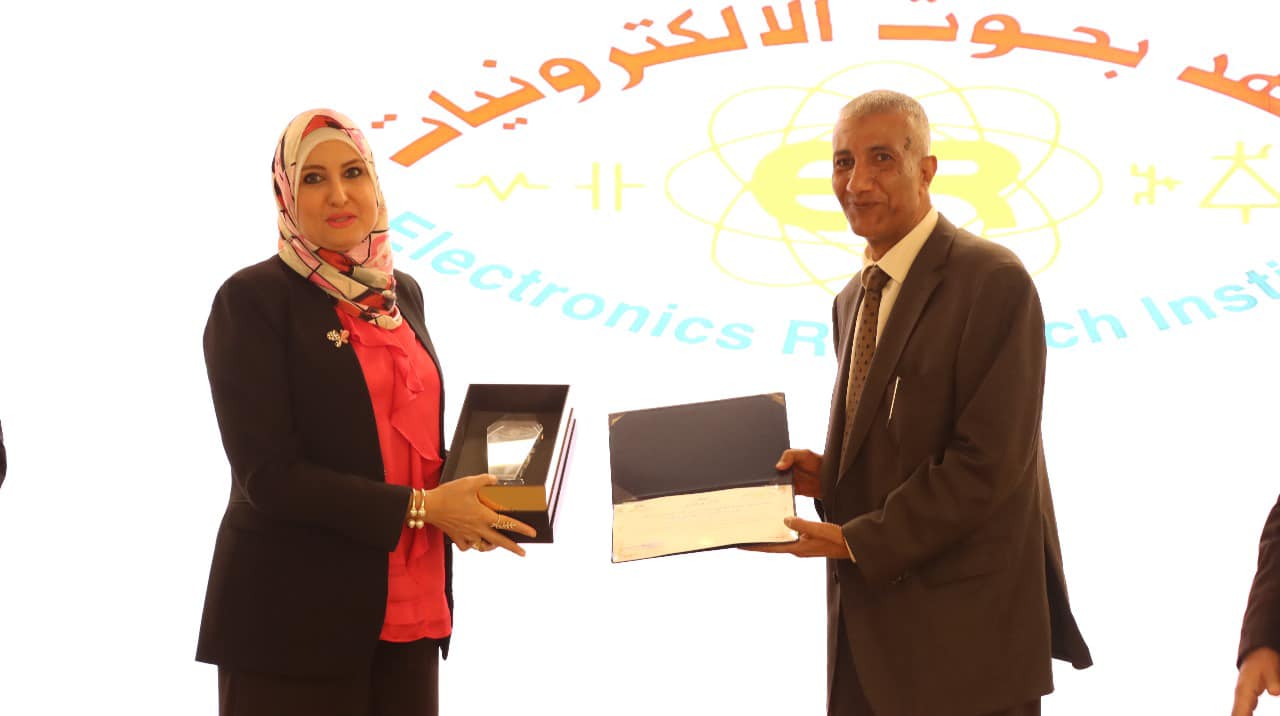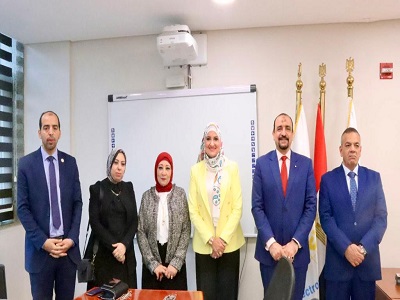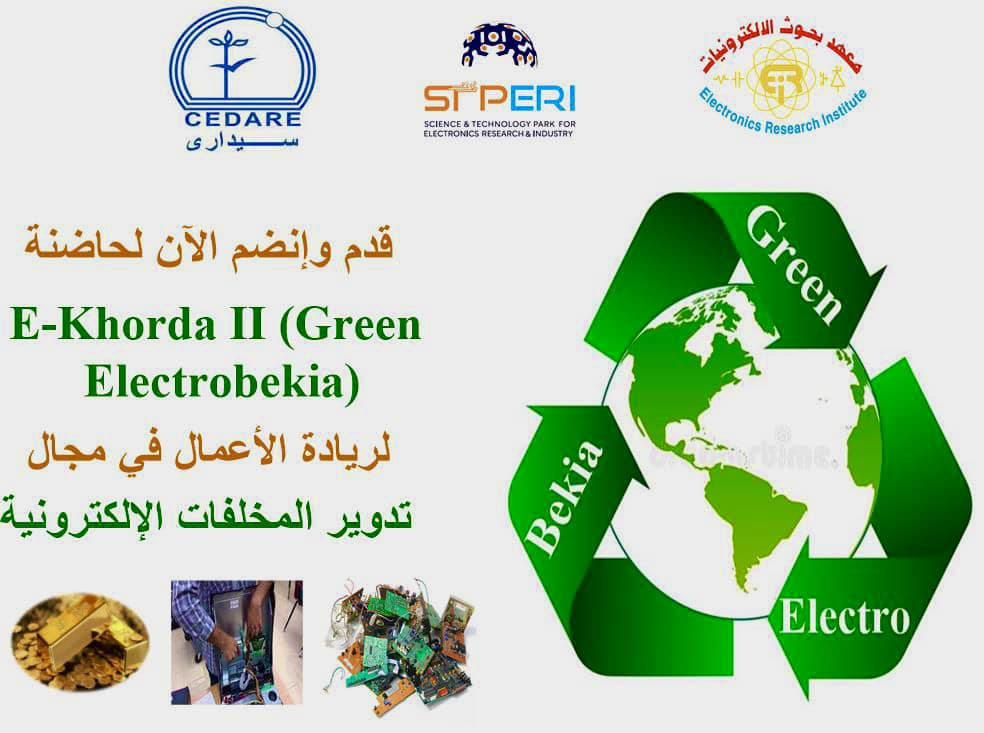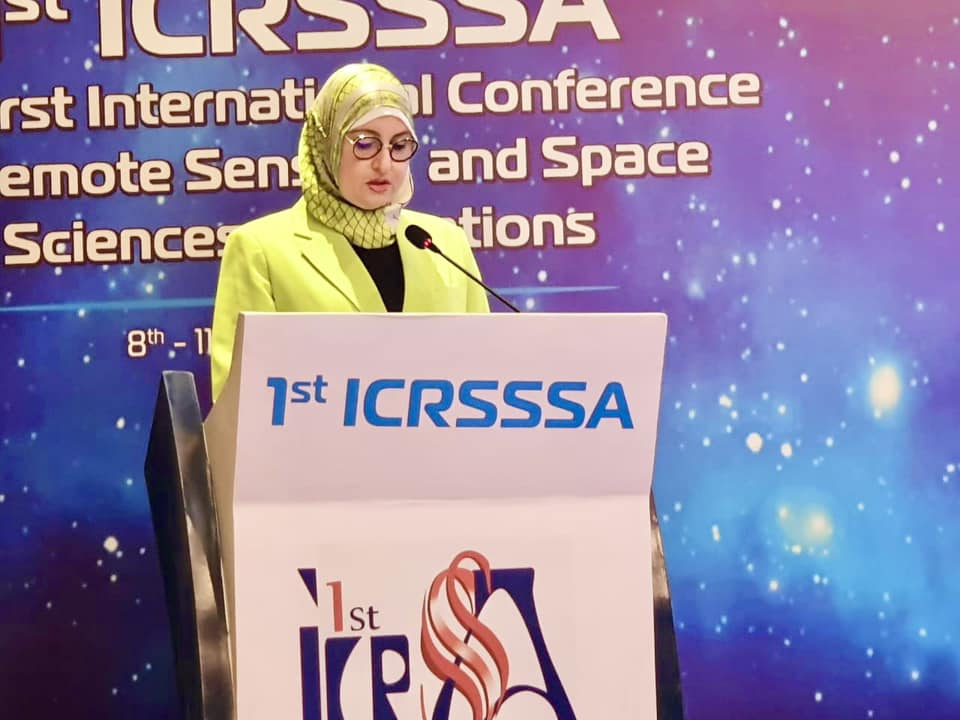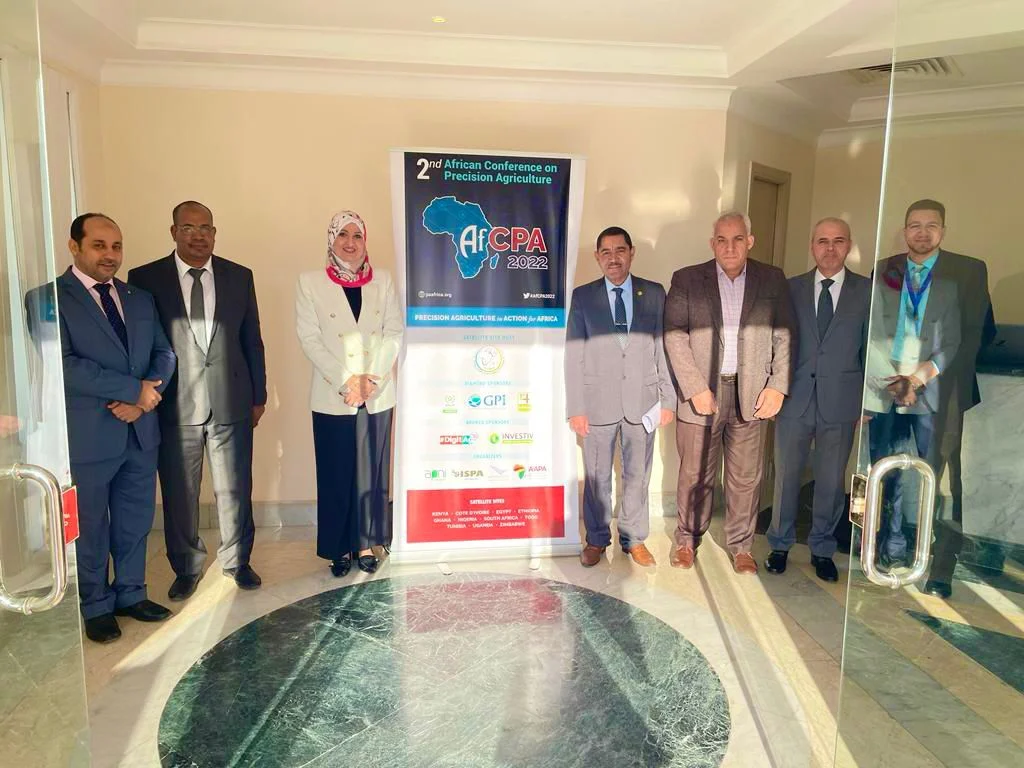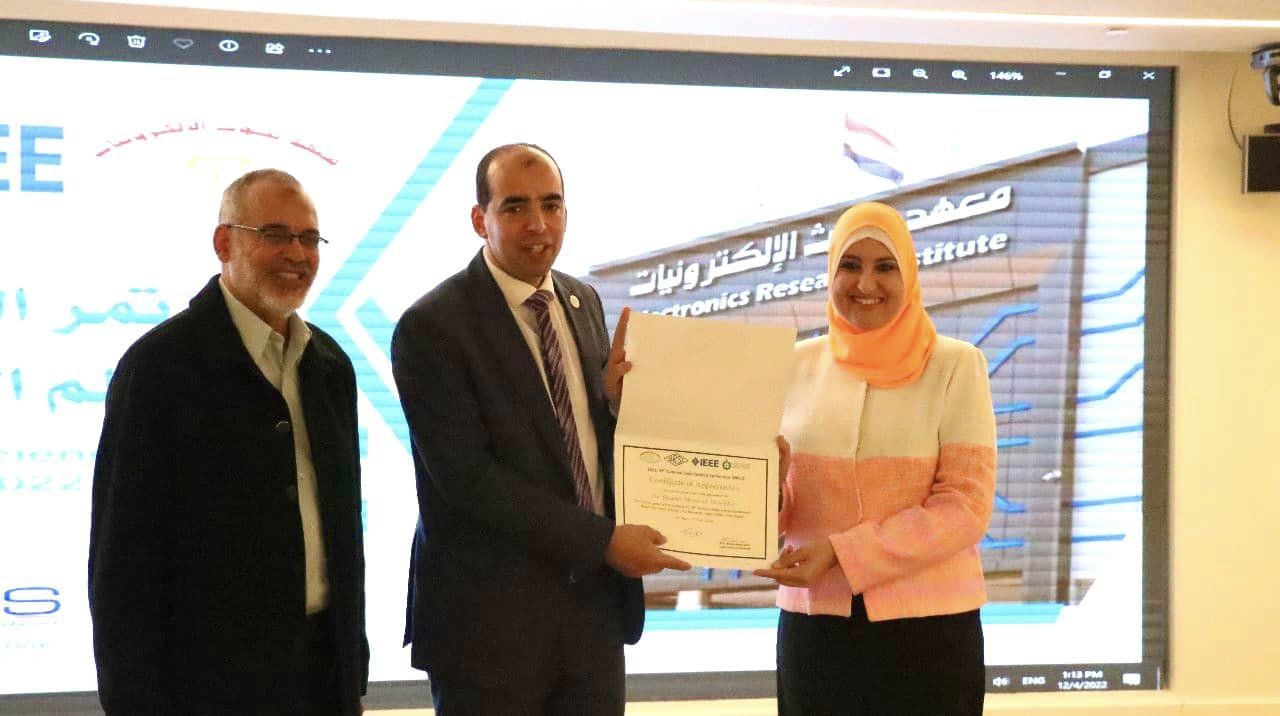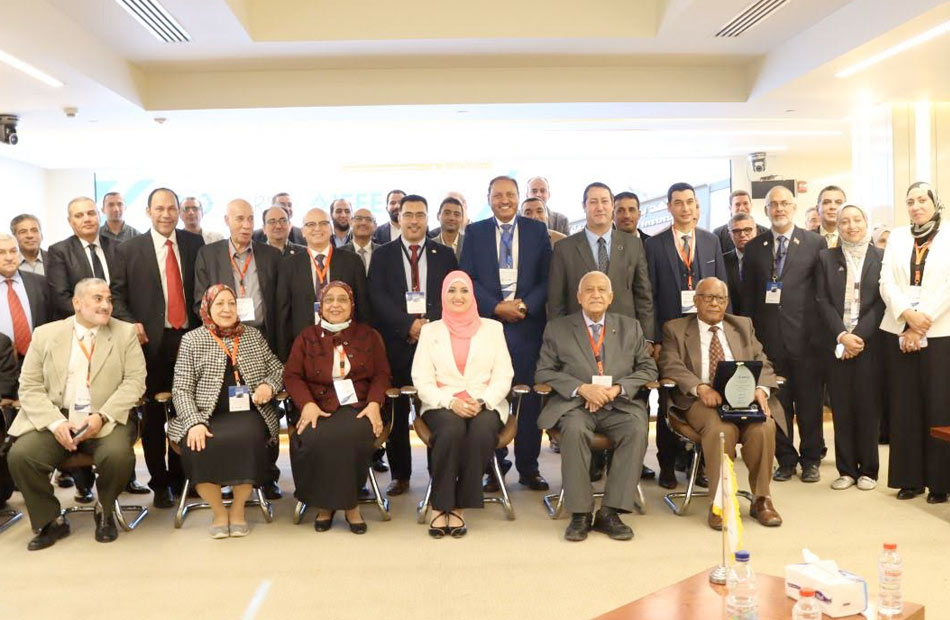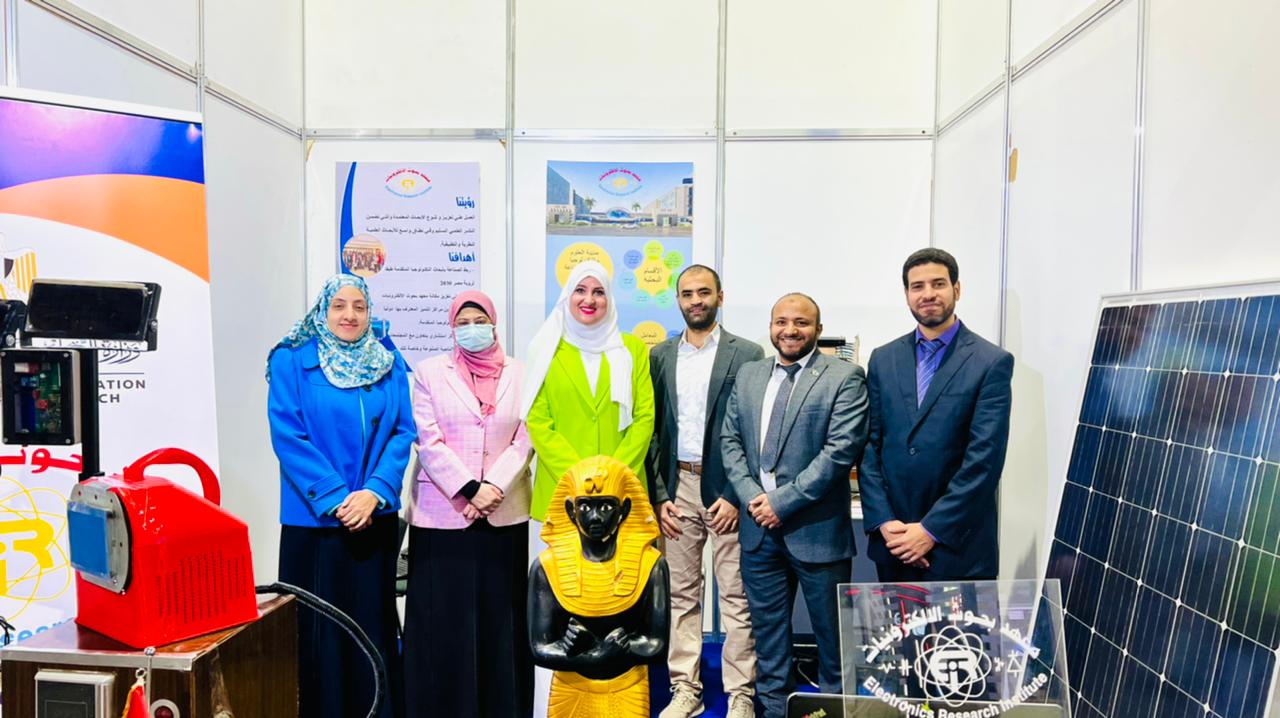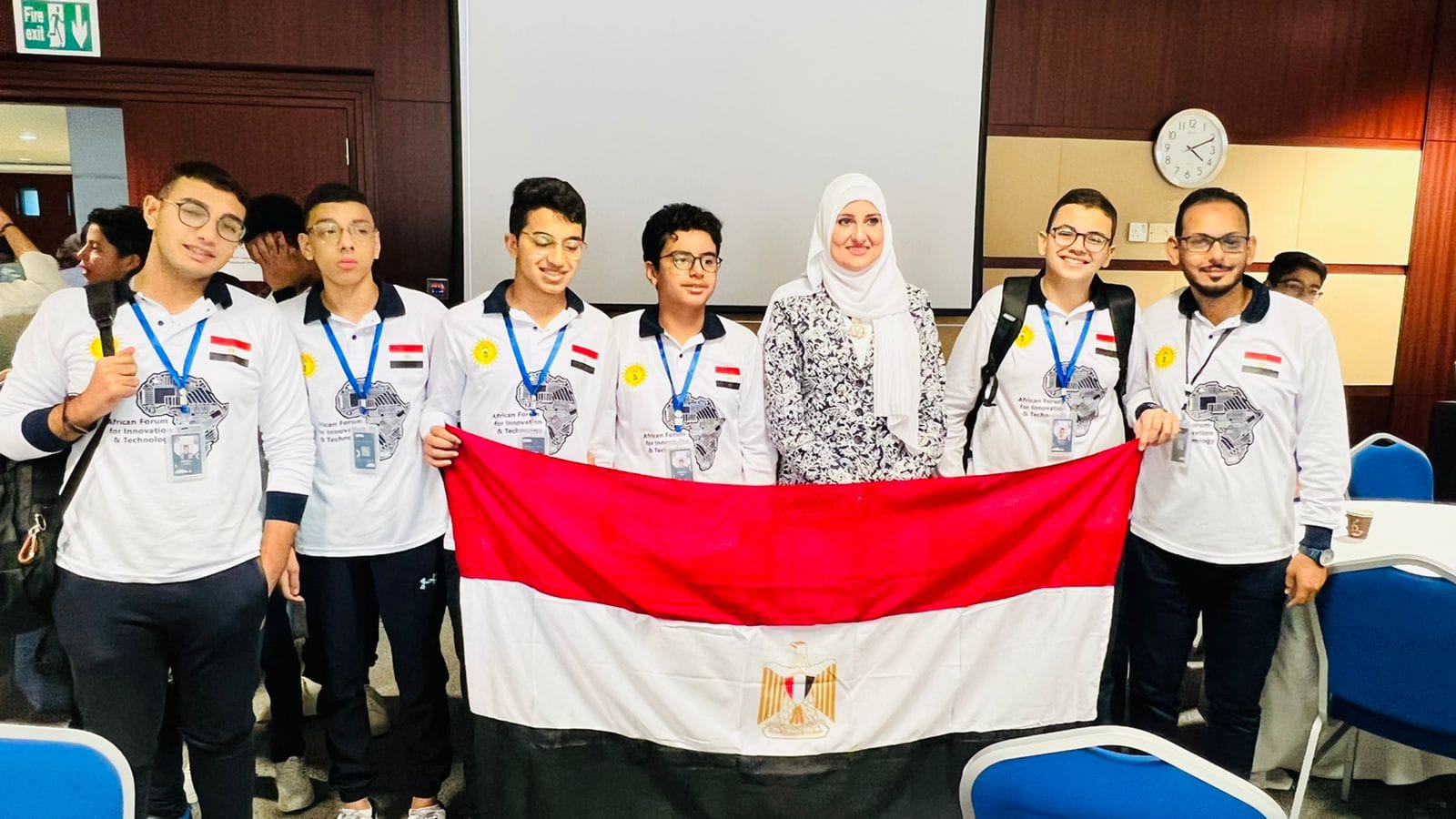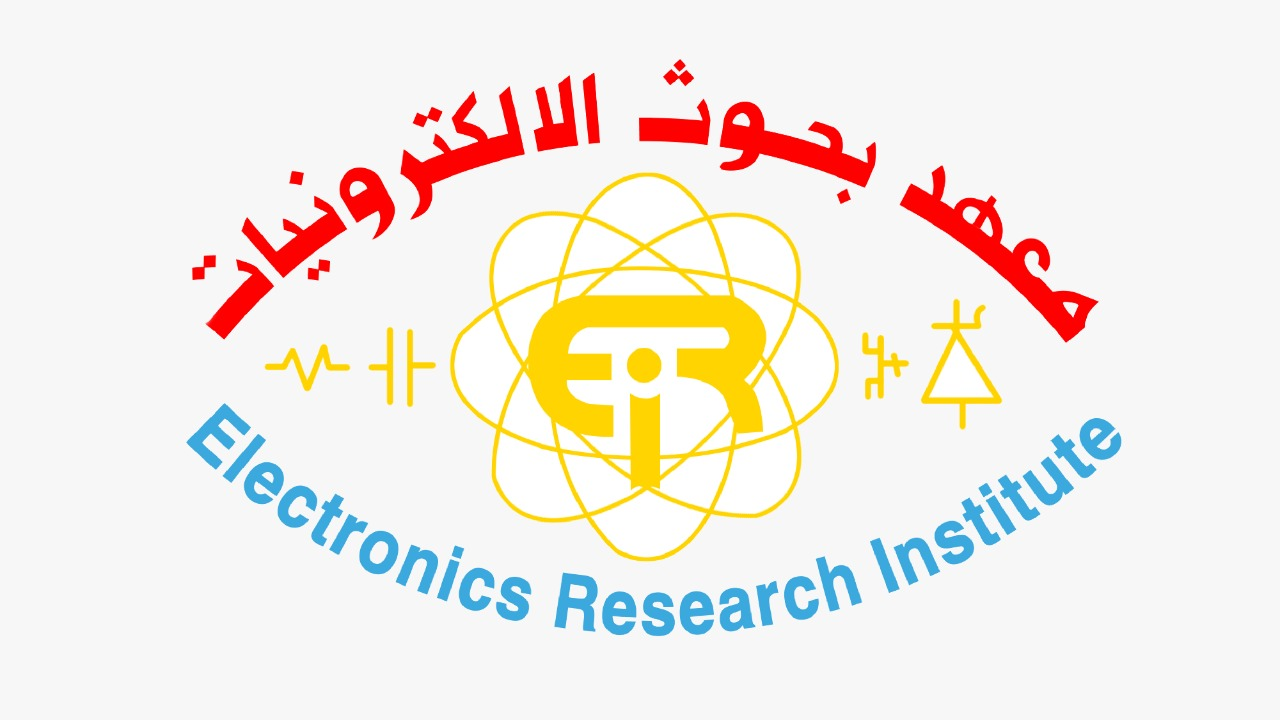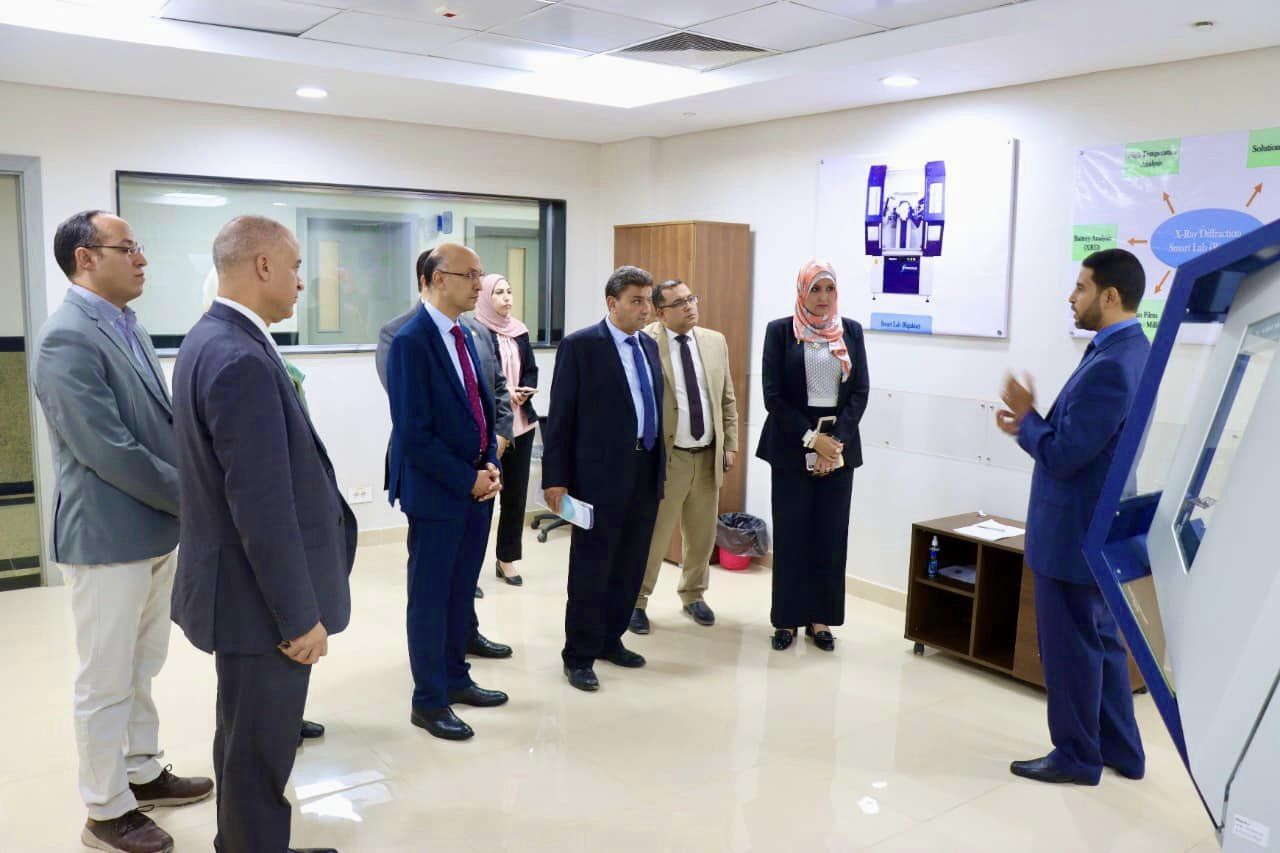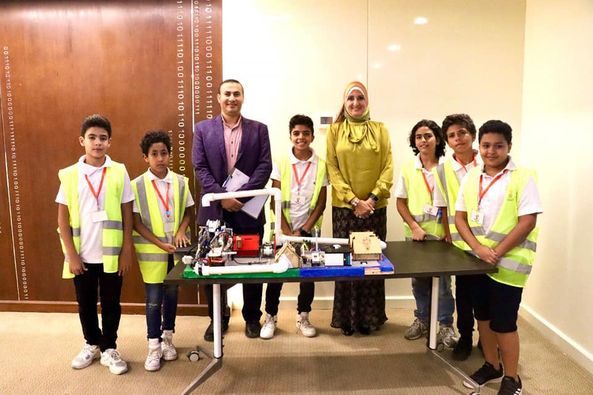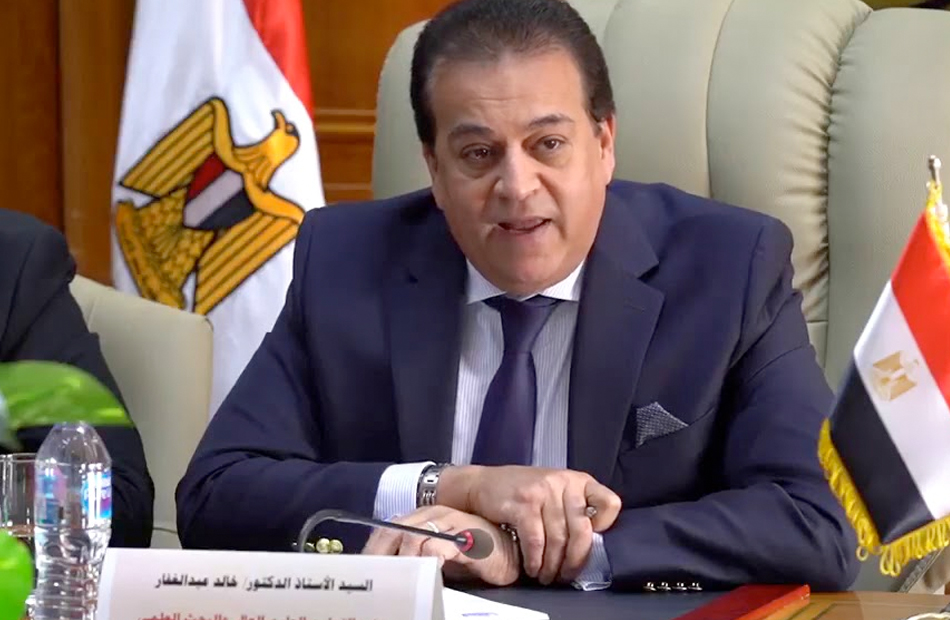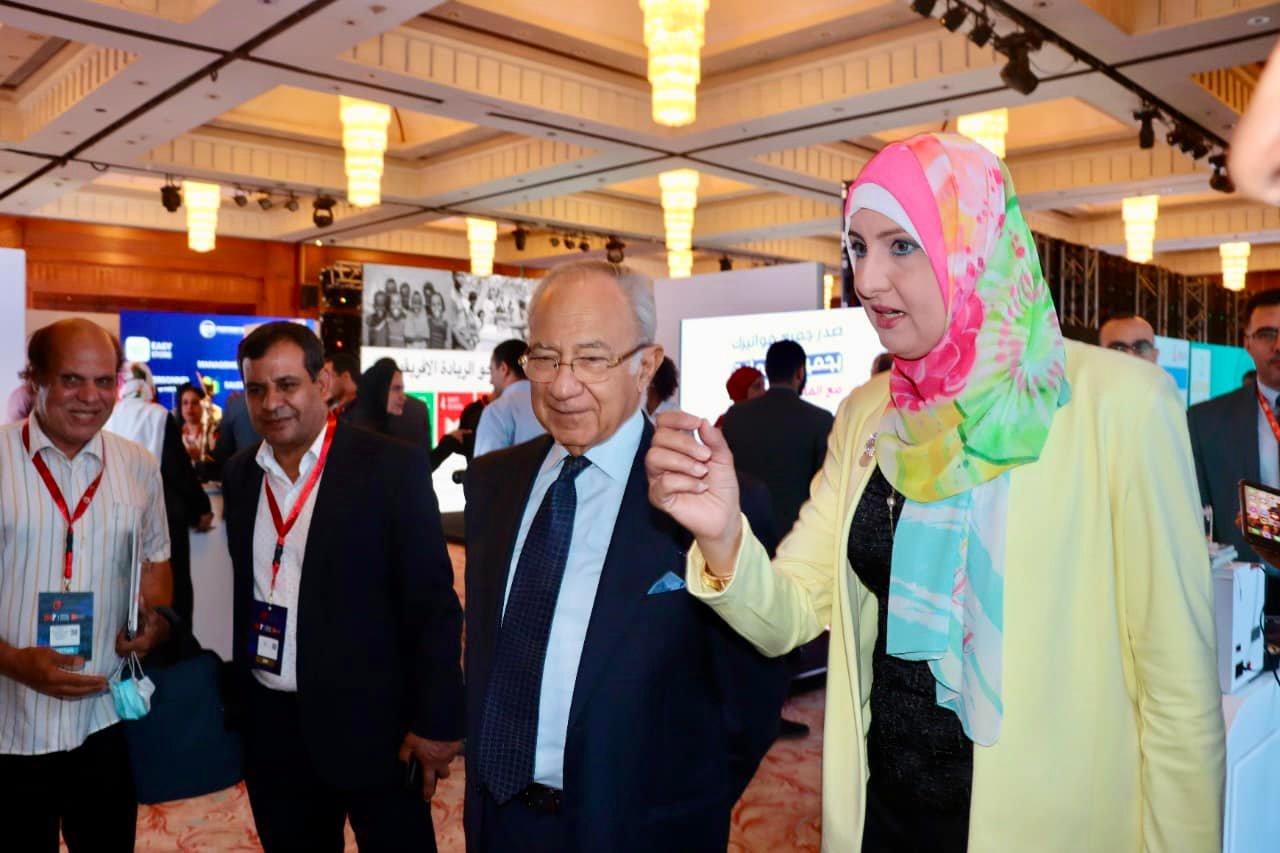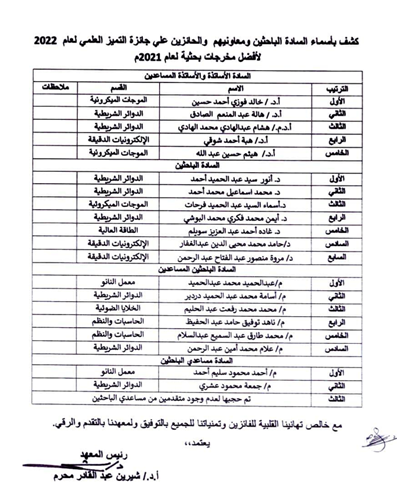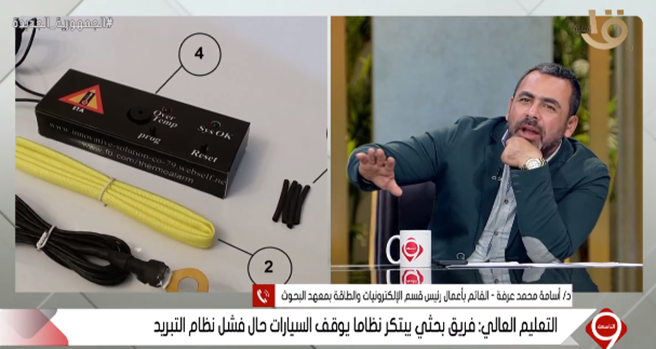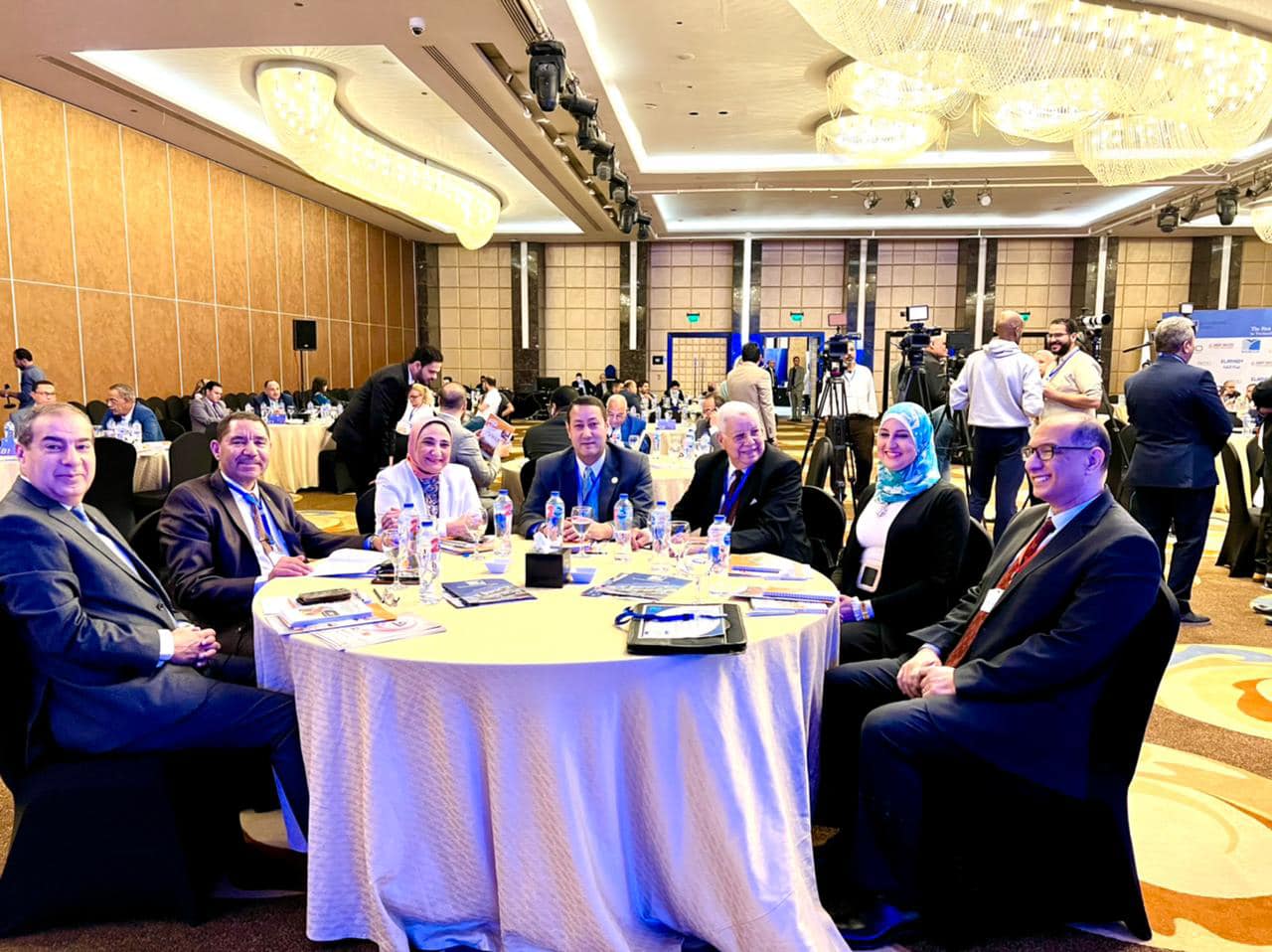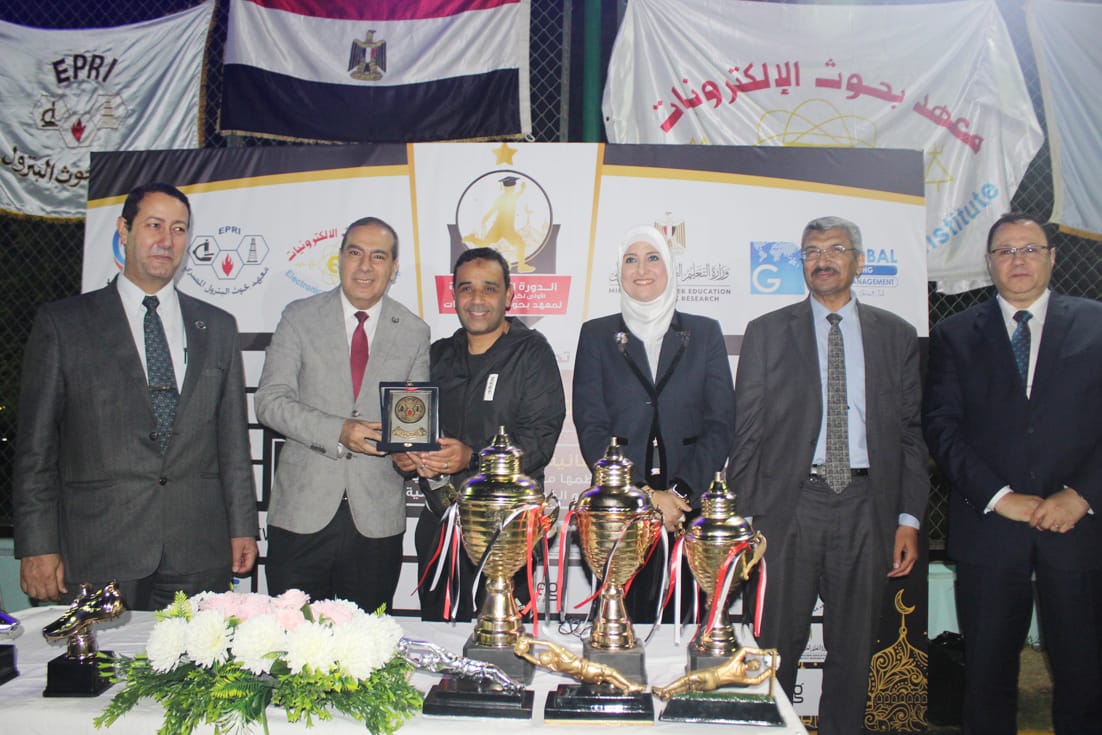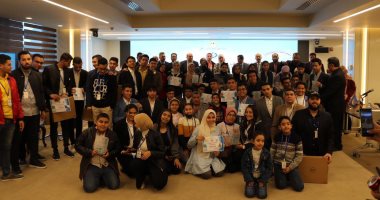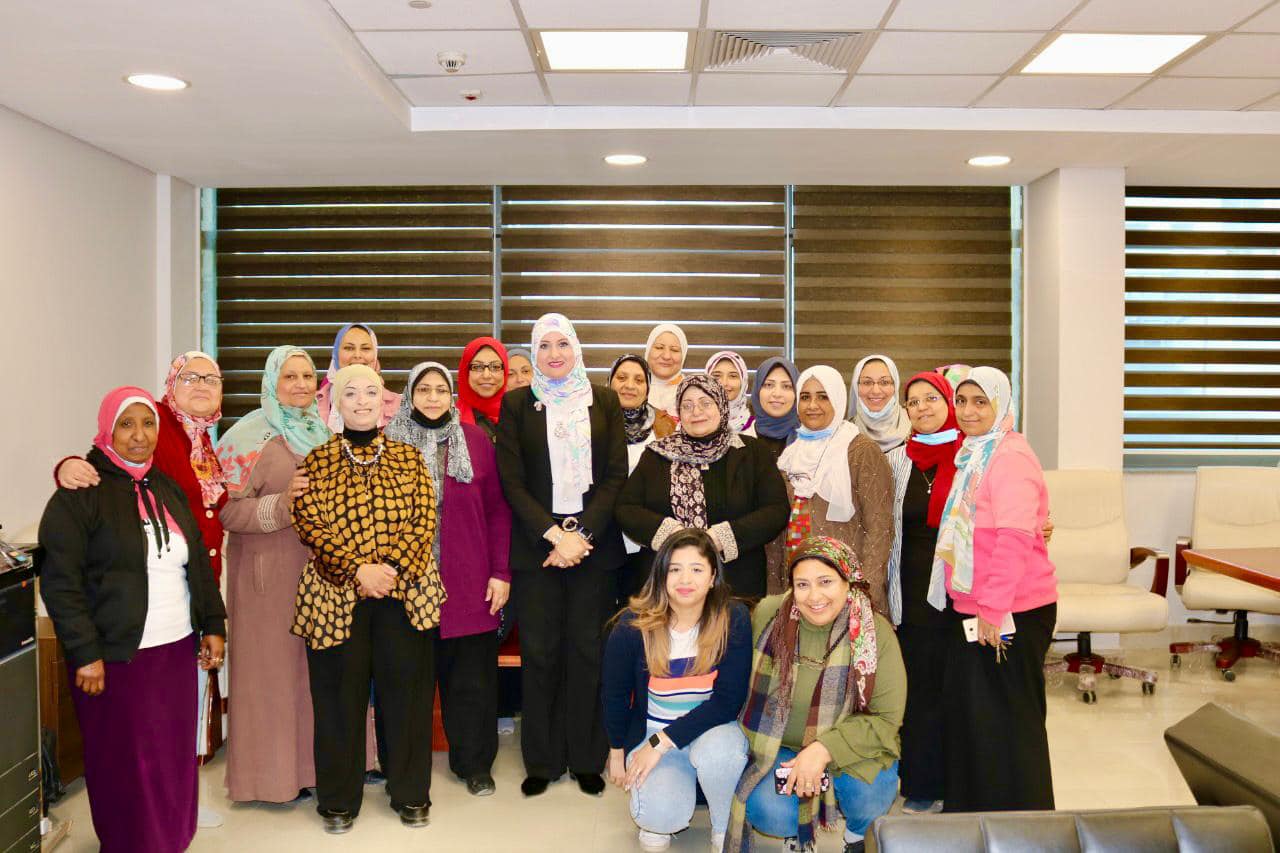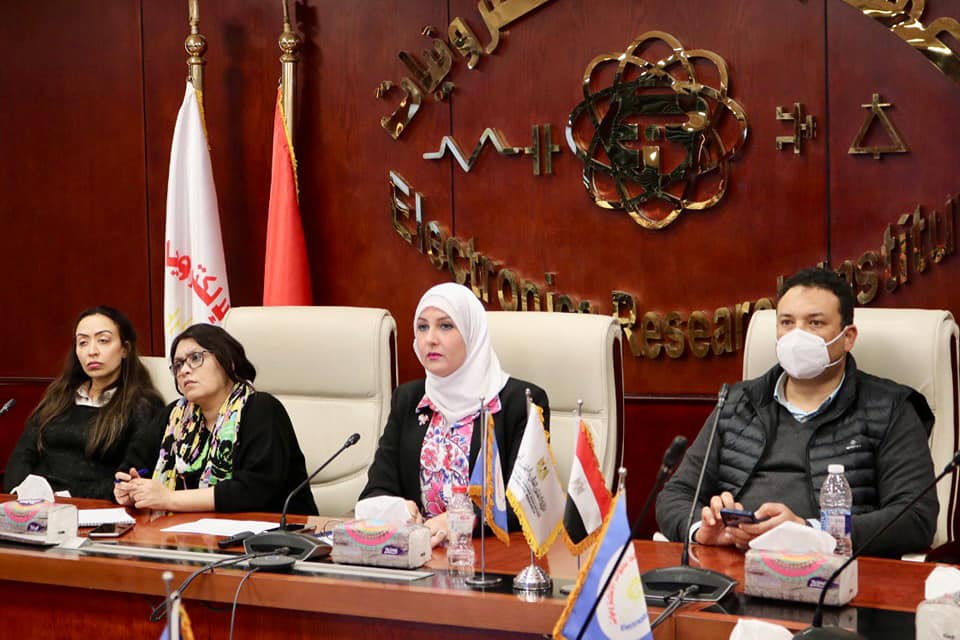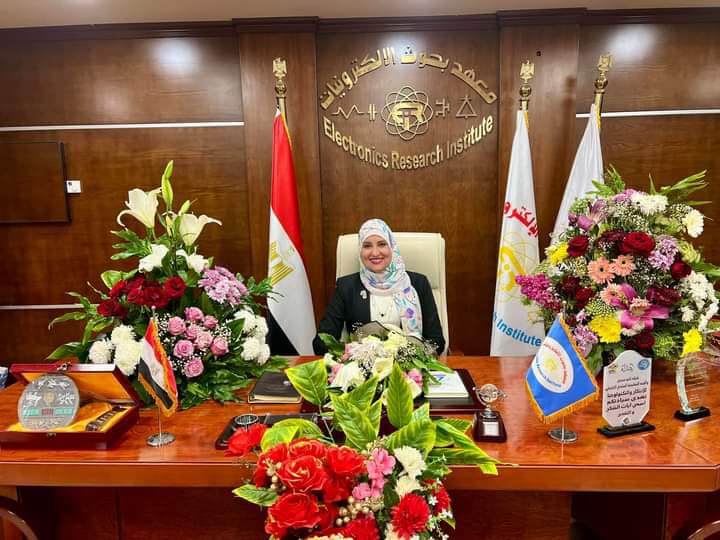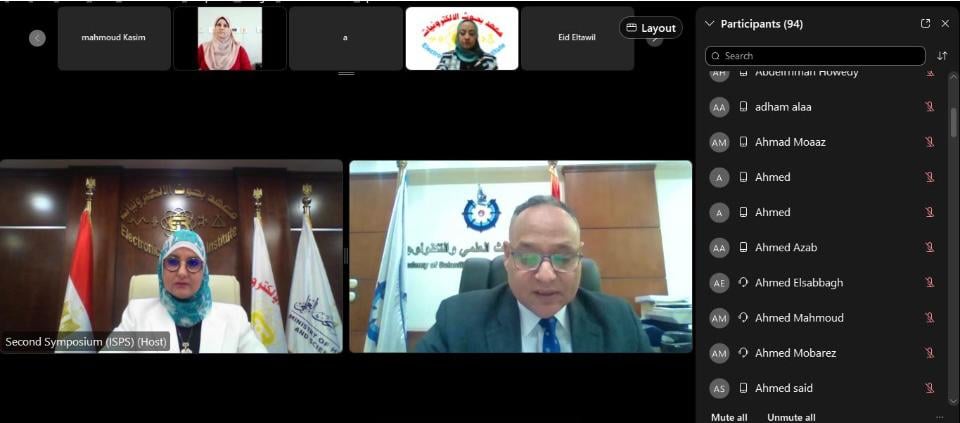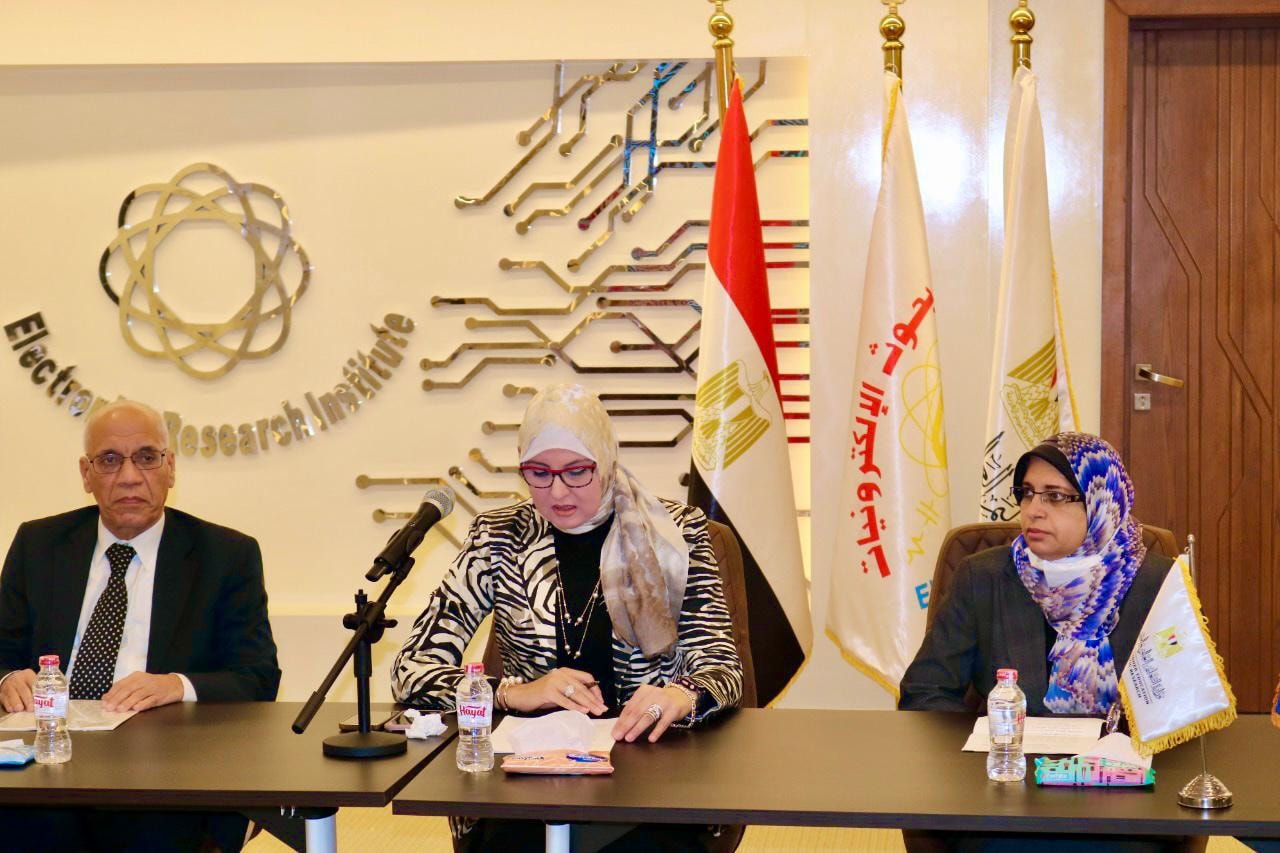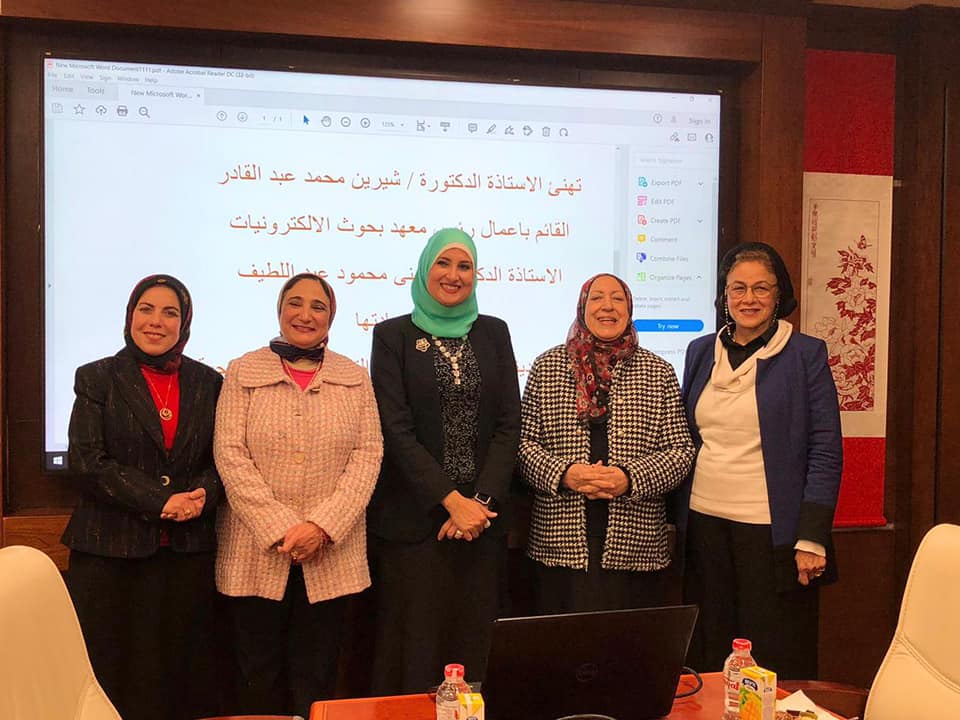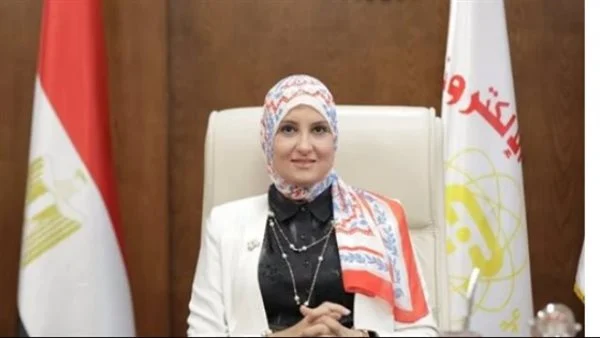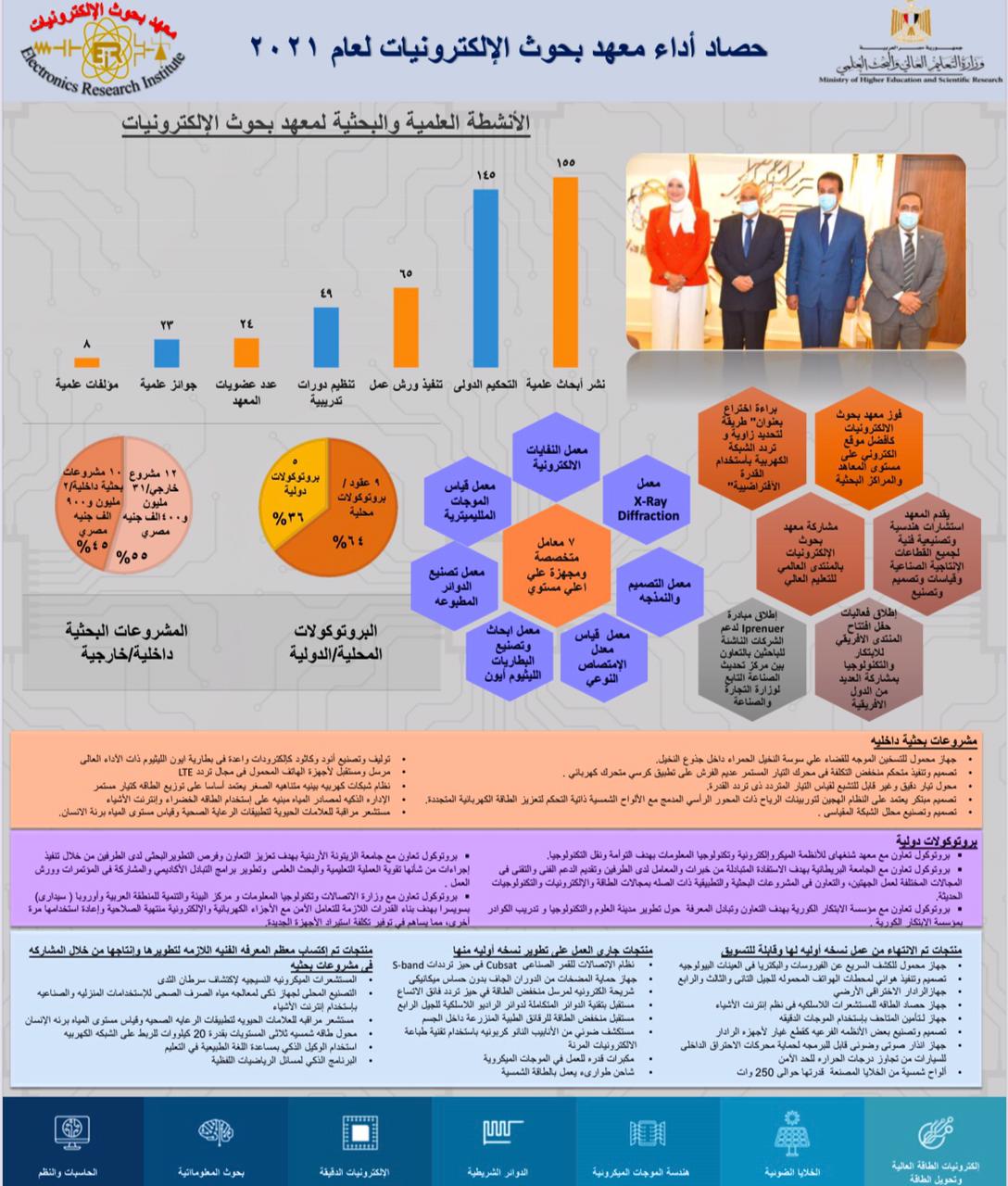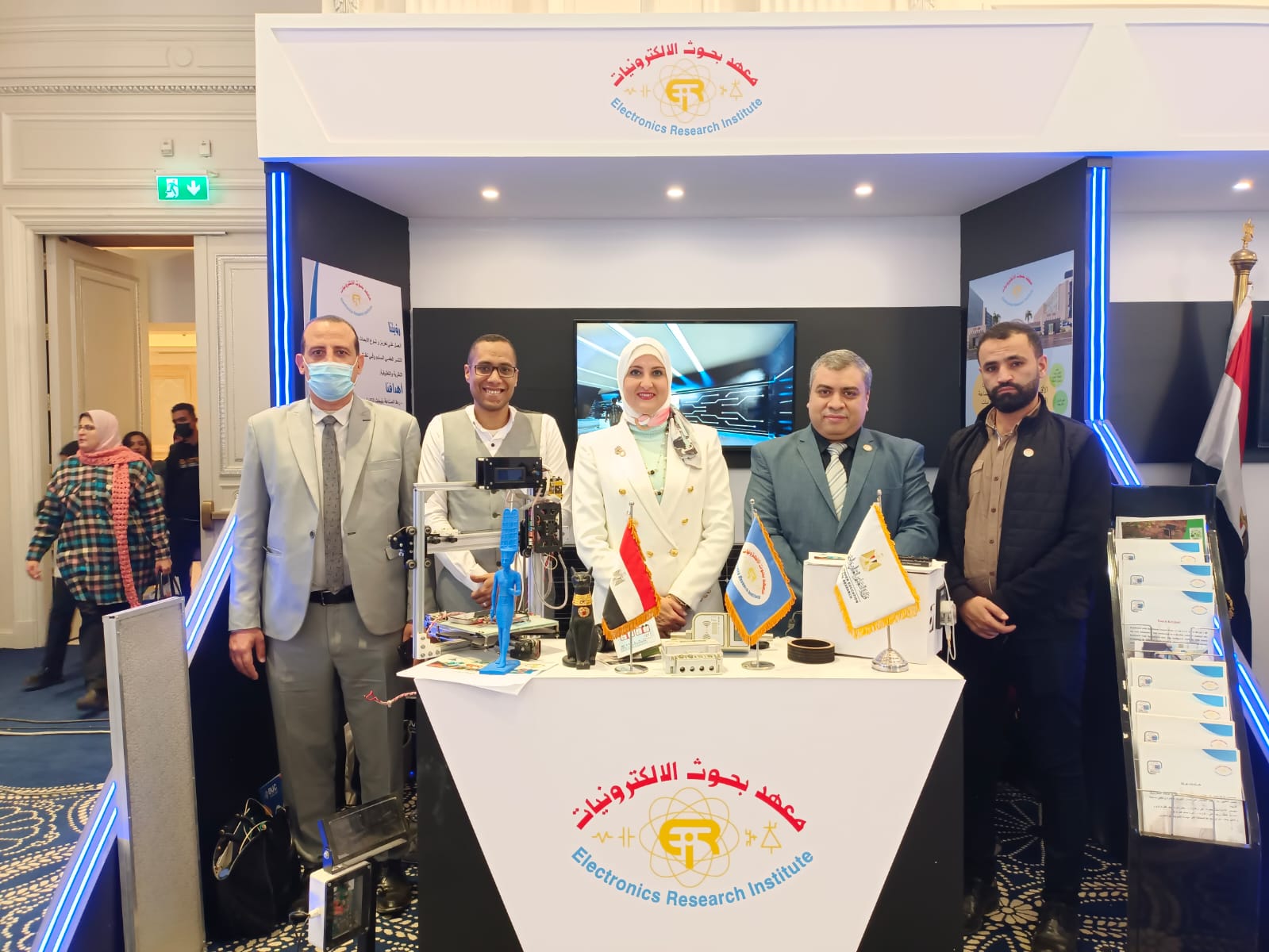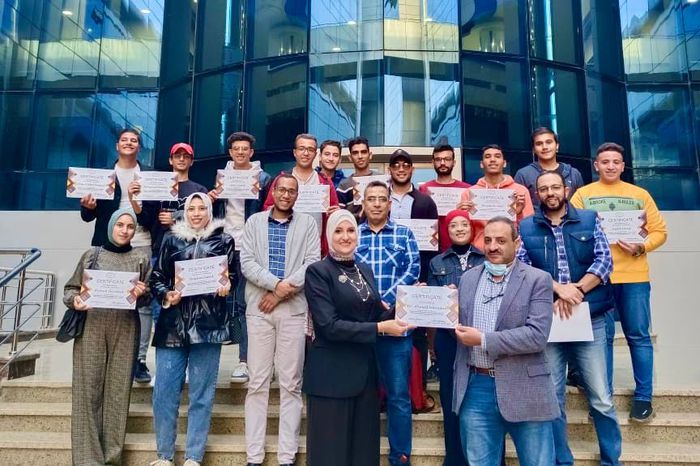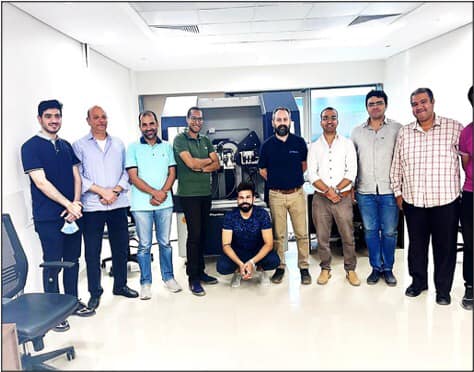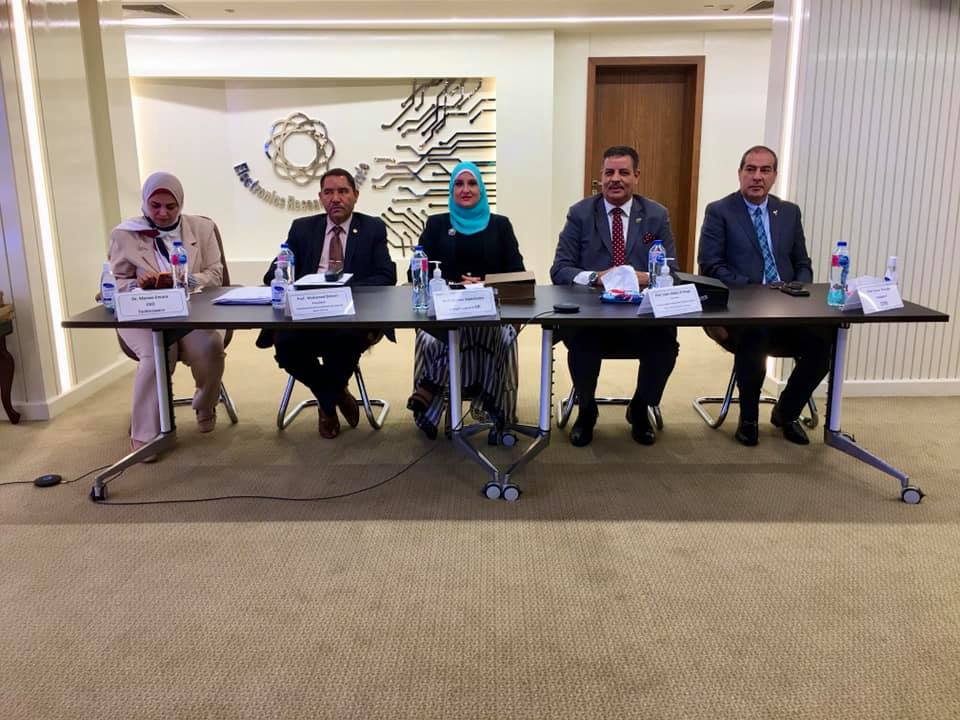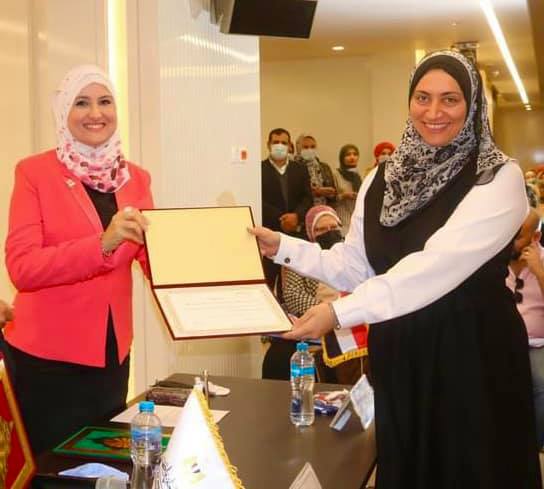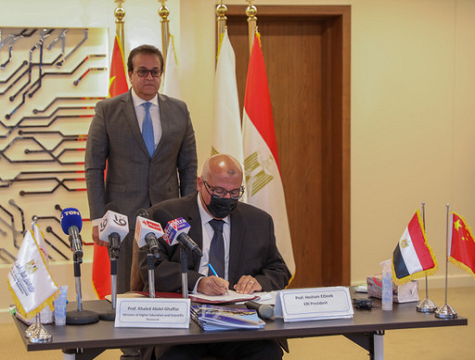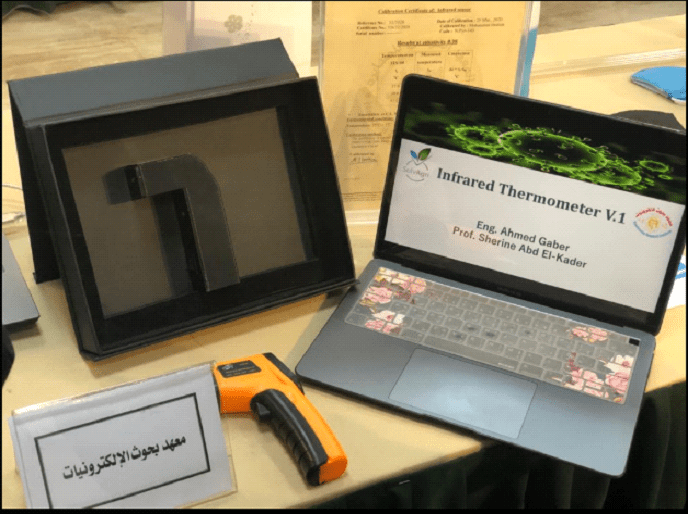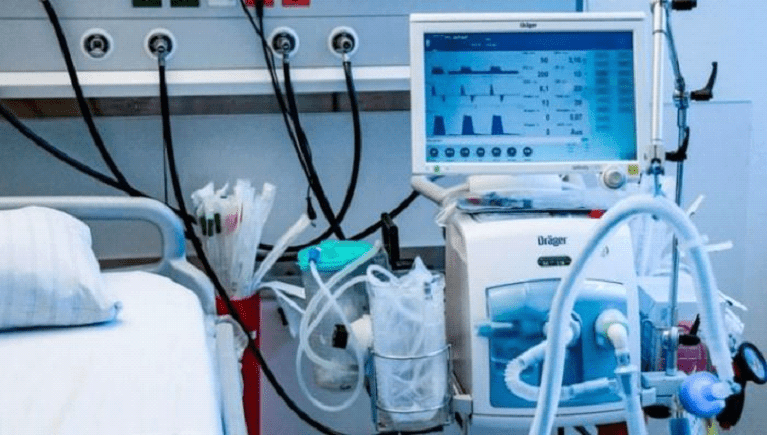Strategy

The Electronics Research Institute was established pursuant to Presidential Decree No. 38 of 1989 as one of the specialized research institutes affiliated with the Ministry of Higher Education and Scientific Research, to represent a distinguished house of expertise in conducting scientific and applied research and studies in the fields of electronics, communications, computers, informatics, new and renewable energy, and space, to rise to global competition. The Institute is considered a consulting center to serve the nation's institutions in general and the services, production, industry, communications and energy sectors in particular. It seeks to support the national economy industrially and strategically by increasing the added value in terms of quality and productivity. Believing in the role of the Institute, the new headquarters was established on an area of 17,000 square meters at the beginning of the Cairo-Ismailia Desert Road (New Nozha area), where the total construction of laboratories and various services reached about 55 thousand square meters.The Electronics Research Institute includes seven scientific departments: Department of Computers and Systems, Department of Informatics Research, Department of High Power Electronics and Power Conversion, Department of Microelectronics, Department of Photovoltaics, Department of Microwave Engineering, and Department of Ribbon Circuits. The institute currently includes 233 members of the research staff and their assistants, making it one of the largest research institutes in Egypt specialized in the field of electronics engineering and information and communications technology. The institute's new headquarters includes a clean room that represents the nucleus of the National Center for Design, Manufacture, Development and Marketing of Microelectromechanical Systems. It also includes a number of central laboratories, including an electronic waste treatment laboratory, a printed electronic circuit manufacturing laboratory, a millimeter wave measurement laboratory, a specific absorption rate measurement laboratory, and a modeling and design laboratory. , Radio-frequency electronic circuit manufacturing laboratory, lithium-ion battery research and manufacturing laboratory, X-ray diffraction SAXS materials analysis laboratory, and the Central Laboratory for Robotics and Automated Manufacturing. The institute has two specialized laboratories in the fields of specialization, a cloud computing laboratory, and a nanotechnology applications laboratory. It also includes a number of research laboratories affiliated with scientific departments. In order to keep pace with global progress and given Egypt’s need to have a city specialized in the field of electronics research and manufacturing, the Science and Technology City for Electronics Research and Industry affiliated with the Institute was established by decision of the Minister of Higher Education and Scientific Research No. 6 of 2021 in light of the provisions of the Science, Technology and Innovation Incentives Law issued by Law No. 23 of 2018.Electronics, communications and information technology is considered one of the most important pillars of progress in the modern era. Many countries rely on these emerging technologies in their strategies and plans for sustainable development, and international organizations place them as one of the most important components of sustainable development during the coming decades of human development. Therefore, the Egyptian state has given these areas great attention as one of the most important components of its “Egypt Vision 2030” strategy. Accordingly, the work team at the Electronics Research Institute has developed this strategy for the institute until 2030, in an effort to implement the axes of the National Strategy for Science, Technology and Innovation 2030, which was developed by the Ministry of Higher Education and Scientific Research and emanating from “Egypt Vision 2030” and the National Strategy for Higher Education and Scientific Research.
Message

1- Taking the initiative to provide studies and consultations for new industrial projects in the field of electronics, communications and information technology that do not exist in the country and whose applications are expected to be important in the future.
2- Carrying out semi-industrial applied projects in the field of electronics, communications and information technology in the stages preceding the implementation of major projects.
3- Assisting in the integration of research plans at the national level in various electronic fields to ensure that research is not duplicated in units attached to some industrial facilities and universities within the country.
4- Building human capabilities in the field of electronics, communications and information technology.
5- Preparing the infrastructure of central and specialized research laboratories capable of implementing electronic manufacturing requirements at the national level.
6- Publishing research articles in the best international and local periodicals and conferences and obtaining patents in the institute’s specialty.
7- Maximizing the Institute’s role in transferring, localizing and disseminating modern technology and marketing ideas and innovations.
8- Design and implement prototypes for the institute and others, and work to transform them into semi-industrial models.
9- Deepening ties with various production and service bodies and civil society.
10- Providing solutions to the industrial sector and the production and services sector based on their desire when conducting a feasibility study for any new project to produce electronic components and devices.
Vision

For the Electronics Research Institute to become one of the most important research, development and innovation centers at the international level in the field of electronics, communications and information technology and a national house of expertise to deepen local manufacturing.
Objectives

• Supporting innovation, transfer and localization of technology
• Deepening local manufacturing and linking with production and service entities
• Contributing to the growth of the knowledge-based national economy
• Consolidating national and international alliances and partnerships
• Building scientific, technical and administrative capabilities
• Raising the scientific research index
• Institutional development
• Developing the institute’s infrastructure and technology
Egypt 2030 Vision
Egypt Vision 2030 focuses on improving the quality of life of the Egyptian citizen and improving his standard of living in various aspects of life by emphasizing the consolidation of the principles of justice, social integration, and the participation of all citizens in political and social life. This comes hand in hand with achieving high, inclusive and sustainable economic growth and enhancing investment in people and building their creative capabilities by urging increased knowledge, innovation and scientific research in all fields. Egypt's Vision 2030 gives importance to confronting the effects of climate change through the presence of an integrated and sustainable ecosystem that enhances resilience and the ability to confront natural risks. The vision also focuses on the governance of state institutions and society through administrative reform, consolidating transparency, supporting monitoring and evaluation systems, and empowering local administrations. All of these desired goals come within the framework of ensuring Egyptian peace and security and enhancing Egyptian leadership regionally and internationally.
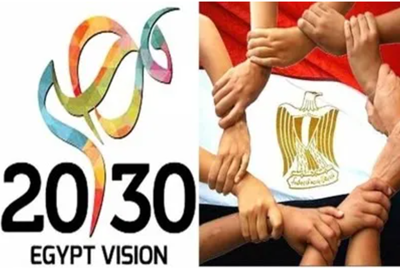
Strengths and Opportunities
Strength point
• Experience and integration in the field of research and manufacturing of electronics, communications and information technology.
• The presence of a distinguished scientific base of expertise and scientific, technical, and administrative cadres.
• Establishing the Institute for the Scientific City for Electronics Research and Manufacturing.
• Proceed towards establishing a semi-industrial clean room for the microelectronics industry.
• The institute’s wonderful geographical location is located between the academic, industrial and commercial areas, as the institute is located in the center of a circle with a radius of 50 km in which Cairo International Airport and four industrial complexes are located “10th of Ramadan, Obour City, Shorouk City, and Badr City” in addition to several government and private universities.
• The institute’s new buildings, with an area of “about 55,000 square metres,” and its equipment include a strong infrastructure of networks, an information center, and central and specialized research laboratories equipped at the highest level.
• Equipped training halls and technical staff capable of providing specialized training in various branches of modern science for young graduates, students and technicians.
• The presence of a special unit, a taiko office, and incubators, in addition to emerging companies.
• The institute has a large list of clients and many international cooperation agreements.
Opportunities
• The national trend to support the information, communications and electronics industry.
• Considering the institute’s project as one of the national projects to which the state pays special attention.
• The growing and steady demand for the latest electronic technologies and information technology solutions.
• The availability of many sources of funding, such as the initiatives of the Ministry of Higher Education and Scientific Research, the Ministry of Communications and Information Technology, the Academy of Scientific Research and Technology, the Science and Technological Development Fund, and the Fund for Supporting Innovators and Brilliant Persons.
• The presence of international bodies that have experience in the field of scientific cities and linking research with industry, with which the institute can form partnerships in these fields.
• Issuance of the Science, Technology and Innovation Incentives Law, which allows research institutes to establish science valleys, technology incubators, and companies.








